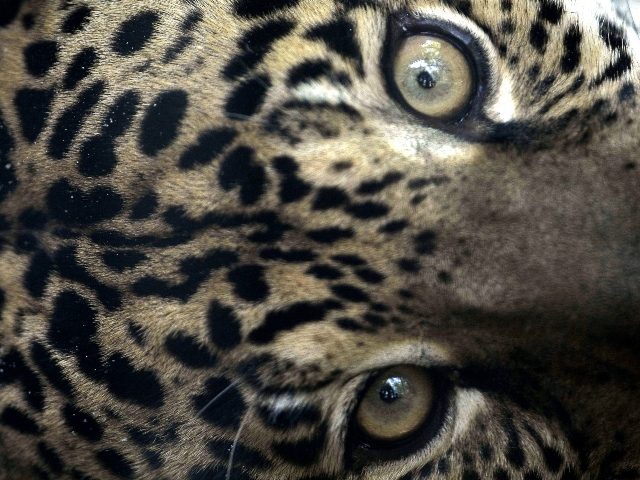Criminal gangs in Bolivia linked to the “Chinese mafia” are allegedly bribing police and customs officials to smuggle jaguar parts to China, a report by environmental groups claimed on Thursday.
In a report commissioned by the International Union for Conservation of Nature in the Netherlands (IUCN NL), 75 intelligence sources, including traffickers of illegal goods, said that criminals sometimes bribe high-ranking government security officials to successfully operate Bolivia’s illegal jaguar trade on established transport routes.
The jaguar is South America’s largest feline. It is classified as “near-threatened” by the IUCN, which estimates that just 2,000-3,000 wild jaguars remain in Bolivia. Traffickers target the endangered cats to sell their teeth, bones, and genitals to Asian clients, the majority of whom are Chinese. The jaguar parts are often passed off as tiger parts, traditionally desired in Asia for their supposed medicinal properties. Increased poaching of tigers in Asia in recent years has decimated the continent’s tiger population, forcing traders to turn to jaguars as a cheaper alternative.
Earth League International (ELI) conducted intelligence-gathering for the IUCN report using “techniques like those employed by government spy agencies to track wildlife crime,” according to Reuters.
“[Bolivia’s] jaguar trade is run by Chinese South American residents, who mostly supply to sellers in China or have links with wholesalers and stockers in China,” ELI’s investigations found.
The “Putian Gang,” or the South American branch of the Chinese Fujian Mafia, plays a major role in controlling the trade of jaguars to China, according to ELI. One of ELI’s sources on the illegal jaguar trade in Bolivia, identified only as “Pol 8B” in the report, said that the Putian Gang “has underground casinos, runs money laundering activities, and runs the cocaine business in Bolivia.”
China has established an increased presence in Bolivia in recent years through its infrastructure-building Belt and Road Initiative.
“Infrastructural developments and the influx of Chinese companies in recent years have been indirect drivers for the surge in jaguar trafficking in Bolivia, both through opening up previously inaccessible wilderness territory and providing new sources of consumer demand,” IUCN stated in its report.
This finding is supported by a 2018 on-site report by Bolivian newspaper El Deber and environmental website Mongabay Latam. According to their joint report, “Residents say that an influx of Chinese companies which are building roads and bridges in Bolivia is contributing to the increased trafficking in jaguar parts.”
“In 2015, in an attempt to improve the investment climate, former [Bolivian] President Evo Morales expanded efforts to attract international investment and boost Bolivia’s energy production capacity,” IUCN recalled in its report. “This move was welcomed by China. Chinese companies have significantly increased their presence in Bolivia in recent years, particularly active in the energy and and transport infrastructure and mining sectors.”
“China is the largest exporter to Bolivia, accounting for around 18 percent of the country’s total imports. It is also the fifth-largest destination for Bolivian exports, mostly raw materials and minerals,” the IUCN noted, citing data from the Bolivian Institute of Foreign Trade.

COMMENTS
Please let us know if you're having issues with commenting.